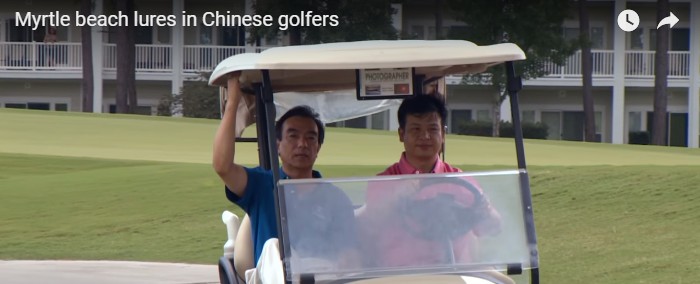


Dan Liu who created Founders Golf International, FGI, with $3 billion in funds stolen from Chinese investors could be facing a class action lawsuit.
The Fourth Circuit Court of Appeals heard arguments in granting a class certification to investors hoodwinked in a Chinese Ponzi scheme Tuesday.
After Easy Richness (Yiquan Funding) collapsed in 2020, Xunhui Cheng and Kelin Cai sued Dan Liu and his U.S. companies. Many advisors who worked for Easy Richness committed suicide after realizing they had help bilk their own Chinese friends out of their life savings.

A raid on the firm’s offices was conducted by Chinese authorities in April 2016 after authorities determined that the billion-dollar company and its founders, including Liu, misappropriated investor funds.
A U.S. District Court judge nixed the plaintiffs’ plan last year to represent the roughly 92,000 victims who lost money through Easy Richness.
Dan Liu bought a home in Charlotte, NC, leaving the day to day control of operations in the care of D.J. Karavan. Land purchases outside the realm of Horry County golf courses were also made in our area from those same stolen funds.
A three-judge panel for the Fourth Circuit Court of Appeals heard arguments Tuesday on whether that ruling was incorrect.
The plaintiffs were represented at the hearing by Gene Connell Jr. of Kelaher, Connell & Connor and Anthony Scordo III of New Jersey. The defendants were represented by Rush Smith III of Nelson Mullins.
According to Dawson, a Donald Trump appointee, almost all the proposed class members were Chinese citizens, and they signed the investment agreements in China, where evidence was difficult to obtain.
“This court is not inclined to seek the permission of the People’s Republic of China as a tool for the manageability of a class action,” Dawson wrote.
Connell was asked by U.S. Circuit Judge Julius Richardson if Dawson was correct to consider the international scope of the case when deciding whether to allow a class action.
While the international nature of the case contributed to manageability, it was not the only factor. Liu used the ill-gotten money to buy real estate in South Carolina, although the crime may have originated in China.
Despite an arrest warrant in China, Cheng and Cai accuse Liu of siphoning millions from Easy Richness to buy nearly two dozen golf courses and other properties in South Carolina, mostly in the Myrtle Beach area, where Liu lives.
Connell said the United States should not be a haven for criminal activity.
It represented their life savings, but not enough to fly each investor to the United States and sue Liu individually. Most investors lost $10,000 to $14,000 in the scheme. Without a class action, he said, most victims would not be able to get justice.
“I think manageability needs to be considered with a sense of justice,” he said.
Donald Trump’s appointee Richardson raised similar concerns with Smith.
He questioned whether Dawson’s concerns were related to the nature of the case rather than the class designation. If each investor individually filed suit against Liu, the court would still need to obtain evidence from China and hire translators. So why would handling the claims as a class be more difficult?
The judge’s order addressed class-specific issues, including determining the losses of each investor and whether they have already received compensation in China, Rush said.
However, Richardson did not seem convinced.
“Much of this analysis was not about the difficulty with a class remedy, but rather about the difficulty with the underlying claim,” the judge explained.
In addition to Richardson, U.S. District Judge Elizabeth Dillon from the Western District of Virginia and Senior U.S. Circuit Judge Barbara Milano Keenan also served on the panel.
Sources close to the case said that the Chief Judge was somewhat sympathetic. They seem to look at it as more of a B(3) class than a B(2) class, however, but they didn’t totally close the door.
The S.C. legal team made it very clear to the judges that, if the Court of Appeals doesn’t step in, that this is effectively the end of the line for the case. Dan Liu essentially gets away with a $3 Billion dollar theft in China.
According to the last briefing, the Defendants don’t even really argue the facts any more. They essentially admit that Dan Liu stole this money.